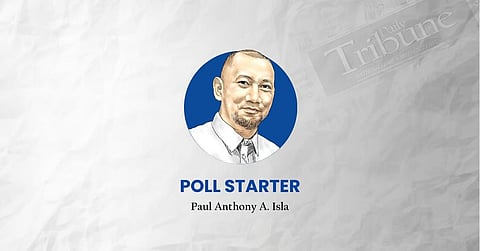
- NEWS
- the EDIT
- COMMENTARY
- BUSINESS
- LIFE
- SHOW
- ACTION
- GLOBAL GOALS
- SNAPS
- DYARYO TIRADA
- MORE

In his remaining years in office, President Ferdinand R. Marcos Jr. has vowed to take a stronger stance to protect the interests of Filipinos against corruption and irregularities in state-led programs and projects.
Bearing the brunt of the President’s ire are officials of the Department of Public Works and Highways (DPWH) and private contractors of substandard and “ghost” flood control projects, not to mention the possibility that these irregularities could occur in other infrastructure projects such as bridges, roads, schools and government buildings, among others.
Taking a cue from the President’s pronouncements and subsequent site inspections, the Senate Blue Ribbon Committee and the House of Representatives’ Tri-Committee on Public Accounts, Public Works and Highways, and Public Accountability initiated their respective legislative inquiries. Their goal is to unmask those accountable and ultimately enact relevant legislation to address the perennial flood crisis.
The President’s findings revealed substandard flood control projects, and former Public Works Secretary Manuel M. Bonoan admitted during two separate hearings that ghost flood projects did exist. As a result, he resigned from his position. He was quickly replaced by then-Transportation Secretary Vince B. Dizon, to whom the President assigned the responsibility of initiating reforms, especially in the contracting of infrastructure projects, and eliminating corrupt officials within the department.
With the hearings charged with drama, Filipinos witnessed how legislators questioned every contractor, challenging their credibility, performance, and track record in delivering infrastructure projects, while dressing down government officials for their ineptitude and failure to protect the public interest. Likewise, legislators cutting each other off in mid-sentence and arguing with one another left spectators to cast doubts about whether these inquiries aim to uncover the truth or protect their allies.
Although the legislators were unable to convince the contractors to reveal the masterminds or their partners behind these anomalies, one contractor did admit that there were instances in which they competed with their sister companies for contracts. Additionally, another acknowledged making financial contributions to politicians’ campaigns during the previous election cycle.
The hearings revealed significant flaws in the public works bidding process, particularly in the pre-qualification and post-construction audits. These issues allowed groups with multiple companies to compete against each other, enabled blacklisted contractors — despite their history of poorly constructed projects — to participate, and permitted the approval and submission of audit and completion reports without conducting actual inspections of the projects.
Regardless of whether these projects originated from the executive branch or Congress, it seems that those entrusted with upholding standards instead conspired with contractors and project implementers. This troubling implication points to a pervasive collusion among all parties involved, undermining the integrity of the entire process.
The lavish lifestyles of these contractors — illustrated by their purchases of luxury cars and substantial donations to political figures — were more an insult than an inspiration to the hardworking taxpayers trying to make ends meet.
Despite Secretary Dizon’s promise of reforms, the revocation of contractors’ licenses, and the dismissal of DPWH officials, still, as a Poll Starter, what every Juan wants to see is whether these erring individuals would be prosecuted for plunder and ultimately face imprisonment. Only then can we truly say that justice has been served.
